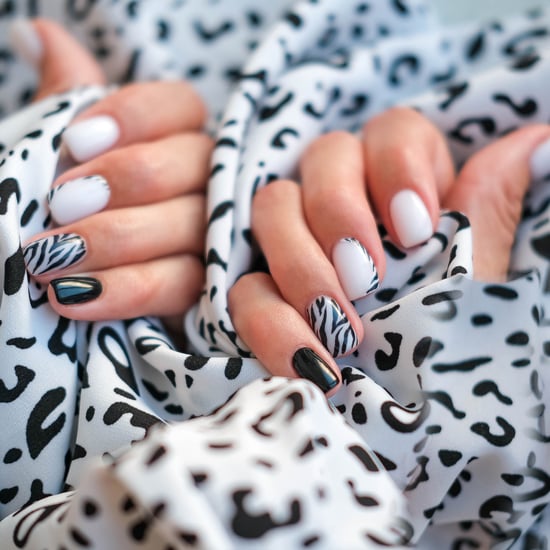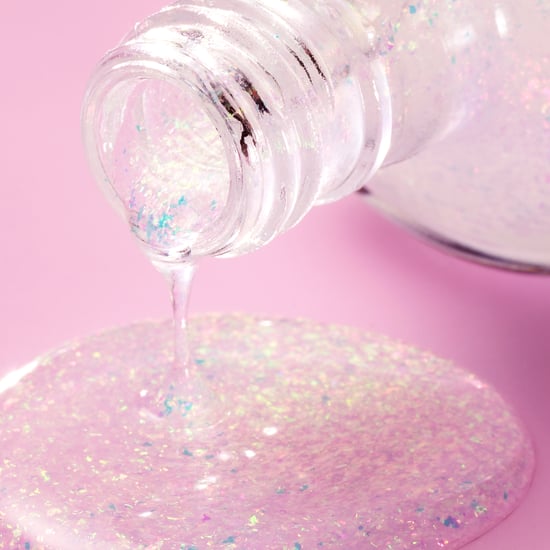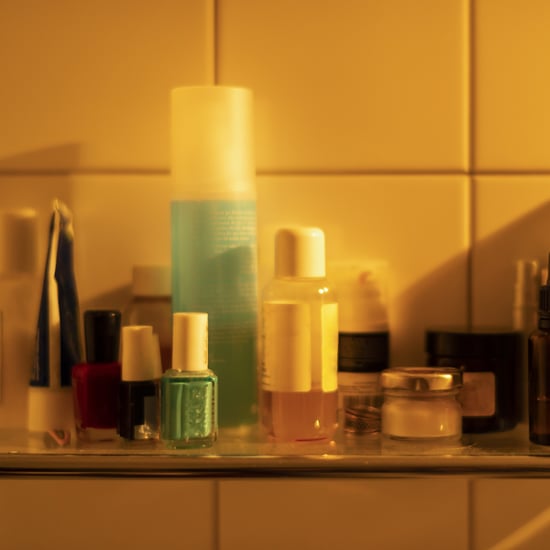Does Apple Cider Vinegar Work For Eczema?
Is Apple Cider Vinegar a Miracle Cure For Eczema? Here's What the Pros Say

Anyone who's been diagnosed with eczema is familiar with the process of trying treatment after treatment and remedy after remedy. Thousands of products tout themselves as miracle cures, and beauty blogs and websites have dedicated entire sections toward soothing flaky, itchy skin with at-home, DIY treatments. As is the case with any sort of skin type or ailment, what seems like a godsend for one person may not work for another. Today, with the help of three dermatologists, we're exploring the topic of using apple cider vinegar to treat eczema.
What Is Eczema?
"Eczema is a skin condition characterized by skin that reacts spontaneously to dryness or potential allergens by developing rashes. It is mostly genetic. Children commonly have eczema, and it is itchy and uncomfortable. Adult eczema comes in different patterns that can be triggered by stress and very dry skin as well as allergens," explained Dr. Anna Guanche, a dermatologist with the Bella Skin Institute. "Basically, eczema is a skin condition where certain areas on the skin turn inflamed, itchy, and [it] is rough in patches. The condition might also lead to painful and unsightly blisters."
Apple Cider Vinegar For Eczema
As you're probably aware, trying to satisfy that itch with a scratch only exacerbates the problem. So how do you soothe your poor, inflamed skin? There are numerous over-the-counter products and prescription ointments that can help. Also, an increasingly common temporary treatment is apple cider vinegar. But does it actually work?
According to Dr. Guanche, orally ingested vinegar may have anti-inflammatory properties, which can assist in calming your skin. She added that topically applied vinegar may also reduce surface bacteria that come on as "opportunists" when the skin barrier is compromised.
"The skin is open and can be prone to infection, making the itching and redness worse. Apple cider vinegar kills bacteria on the surface of the skin and seems to 'dry up' superficially infected skin," explained Dr. Purvisha Patel, a board-certified dermatologist and the founder of Visha Skincare.
The acetic, lactic, and malic acids possess antimicrobial and antiseptic properties that help fight skin infections causing eczema. However, noted Dr. Guanche, apple cider vinegar is pretty smelly, and it may be difficult to rinse the smell away. Also, fair warning: the acidic nature of the vinegar would sting.
Application Instructions
Our dermatologists recommended applying apple cider vinegar via a clean cotton pad onto a small trial patch of your skin, noting that some people actually prefer a sting to an itch!
"A thick moisturiser, such as Visha Skincare Bump 2 Baby, should then be put on the skin so the small cracks in the skin that just got cleansed are now filled. This helps stop the skin nerves from firing when exposed to air," advised Dr. Patel.
For a milder approach, you can dilute the vinegar.
"Add two cups of apple cider vinegar to a warm bath and soak in it for about 30 minutes to help to calm and soothe the skin. This works best when performed three to four times a week when there is an active flare," advised Dr. Arash Akhavan, the founder of NYC's Dermatology and Laser Group. "Secondly, making an ACV toner can help to spot treat specific areas of concern. With this treatment, I recommend mixing half ACV with half water. This mixture is a bit more potent than in the ACV bath soak. Apply this solution using a cotton ball on affected areas once or twice per day."
Again, follow up with a moisturiser.
Other Treatments For Eczema
First and foremost, if you suffer from eczema, a visit to the dermatologist should be on your priority to-do list.
"He or she will give you a good plan of action and will probably include topical anti-inflammatories — both steroidal and nonsteroidal — as well as antihistamines," said Dr. Guanche. "I also suggest getting a bland moisturiser and taking short, cool showers, as long, hot showers dry out the skin. And as relaxing as they are, you also should avoid overdrying skin with long, hot baths."
Also, it goes without saying that you should avoid your known allergenic triggers, which vary from person to person. On that note, Patel added that you should make sure to get your eight glasses of water a day, take a multivitamin and probiotic, and get enough zzz's.
Bottom Line
At the end of the day, eczema is a broad and complex disease that is due to overactivity of the skin's immune system. It can range from extremely mild and manageable to debilitating, and none of our derms weren't 100 percent convinced that ACV is the best option when it comes to treatment. Treating your eczema with apple cider vinegar may work for you, but don't consider it a replacement treatment, and don't cross your fingers hoping it's a cure-all.







